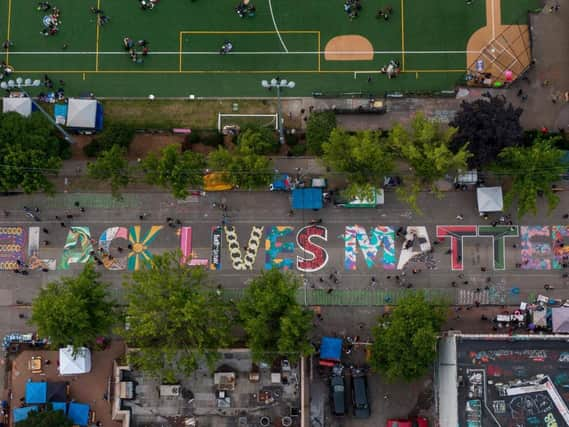'Time for change is still there; we may still raise up a society that can repent of its faults and live better'


About 15 years ago, when I was being prepared for ordination, I was sent from my small Lincolnshire market town, populated by a combustible mix of farmers and airmen (my father was one of the latter) to north London on placement.
In the shadow of White Hart Lane was a little brick-built church, a 1970s’ replacement for a demolished Victorian building, in which a massive congregation of whites, African-Caribbeans and Africans gathered for worship, just a few yards from Tottenham High Street.
Advertisement
Hide AdAdvertisement
Hide AdI met a very elderly lady there who had been an early arrival during Windrush who, upon arriving in Tottenham, took her seat in the church one Sunday morning to tutting noises, and disapproving glances. Despite provocations, she neither left the building, nor moved to the inferior place in the church that the white ladies suggested she move to, so that she was away from them.
For many years she endured this sort of experience, until the day came for the Victorian church to be demolished. Heavy equipment arrived, and she noticed a small group of the women she’d worshipped with for years watching close-by, and weeping at the memories that fell as rubble into the ground. She, on the other hand, could not keep from shouting for joy. “Now,” she cried out, to any who would hear, “God will build his church.”
I’ve often thought about her (she has long since gone to be with the Lord) every time society has come up against a moment where tackling racism becomes again a matter of protest, of national conversation, and of fierce embitterment playing out in public.
Perhaps that is where tackling racism belongs, instead of in anodyne policies and mind-numbing training that makes ‘equality and diversity’ as appealing (to those who’ve never had to fight for it) as being taught to use a tin-opener.
Advertisement
Hide AdAdvertisement
Hide Ad“All lives matter”, some carol, as if imparting some profound, higher wisdom, yet completely ignoring the fact that anyone holding a ‘Black Lives Matter’ placard sees nothing in society that makes them objectively think, or subjectively believe, that ‘all lives’ includes them.
My own church has a good deal of shame to deal with in this area.
And while our communion held within it those who were ardent abolitionists, there were far too many who maintained the status quo, even justifying that keeping slaves was justifiable if they weren’t sold.
Generations later, when African-Caribbean workers began to arrive in England – at the invitation of a state that needed to rebuild its economy after the Second World War – it callously tolerated racism in its pews.
Advertisement
Hide AdAdvertisement
Hide AdIt barbarically divided churches, leaving us with lots of new congregations instead of confident, large ones.
And within the wake of thinking and unthinking racism, from the specifically hateful to the systematised discrimination, follows dashed dreams, social isolation, and a man from Minneapolis suffocating under the boot of a police officer with more fear of change than love of justice.
Time for change is still there; we may still raise up a society that can repent of its faults and live better.
But while any resistance to needful change holds firm, we shall probably see more grasping for the things that can be moved, like statues that compliantly let themselves be turfed into the water.
Advertisement
Hide AdAdvertisement
Hide AdIf it lacks explanation, the uncensored history of our turbulent past will find new place at the bottom of the sea, and for no other reason than our present, stubbornly refusing to learn from the barbarism of the past.